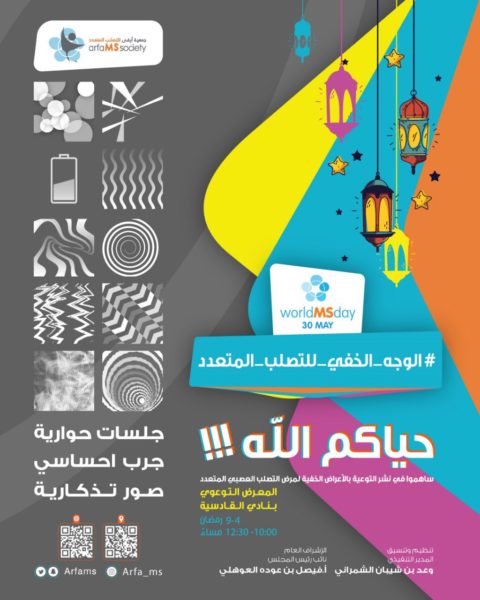Noah “40” Shebib: Music producer living with MS

Noah Shebib, known as “40”, is a Canadian hip-hop producer who lives with multiple sclerosis (MS). He was diagnosed with MS on his 22nd birthday after experiencing strange feelings in his legs: “hot was cold and cold was hot”, he said. Without having pervious knowledge of MS or its symptoms, Shebib thought that MS “sounded intimidating”.
Watch Shebib talk about ‘Living with MS’ in his CNN interview in the video below:
Shebib’s successful career began as a child actor. He appeared in the ‘Goosebumps’ series and the Canadian Gemini award winning ‘Wind at My Back’. Shebib evolved into a hit music producer through working with his close friend and Grammy nominated rapper and singer Drake. “40” as he’s known by his fans, is spreading awareness for the National Multiple Sclerosis Societyin the United States.
“MS has made me a stronger person and motivated me to find success despite it.”
This week’s World MS Day (WMSD) riddle highlights that the symptoms of MS are often first encountered between the ages of 25-31. Shebib’s diagnosis story identifies how young people are affected by MS and reflects how confusing this time can be. Often young people mistake common symptoms of MS, such as fatigue, as being the result of stress from common life changes such as moving home, increased career pressures or starting a family.
After Shebib’s diagnosis, it took three years for him to get back to some normality with the help of medical treatment. Doing simple tasks like getting dressed can be almost impossible at times, and on occasion, Shebib has to rearrange his working day because of his MS symptoms. Shebib has the support of friends and family, including his mother Tedde More, who was diagnosed with MS two years after her son.
Shebib says that the most difficult things about his diagnosis are “explaining to people how MS works, justifying the effects of MS, and the ‘but you look so good’ syndrome.”
“I wish people knew how unpredictable the disease is. One day I can walk five miles and the following day only 500 feet. It is very difficult for people to grasp that concept.”
Some young people living with MS feel that they get overlooked within society or that employers mistake MS symptoms for laziness. Shebib works in a creative industry which allows him to work flexible hours. Although he is able to rest when he needs to, he still has major projects and tours to deal with which would not be easy for most people.
Spreading awareness of the effects of MS is a vital aim of WMSD and increased understanding will help influence public policy in favour of all people living with MS. There is currently no known cause or cure for MS. Shebib believes connecting people to MS is the first major step in ending MS.
“By improving connections and knowledge about MS, we can end the disease.”
Related news
Since 2009, you have helped us bring the world together for people with MS. Help us end MS across the…

The global MSIF movement has gone full steam ahead in using the #MyInvisibleMS toolkit, adapting the materials and sharing them…

We asked people from around the world to tell us about their invisible symptoms. In this video Giulia, Diego, Michela,…
